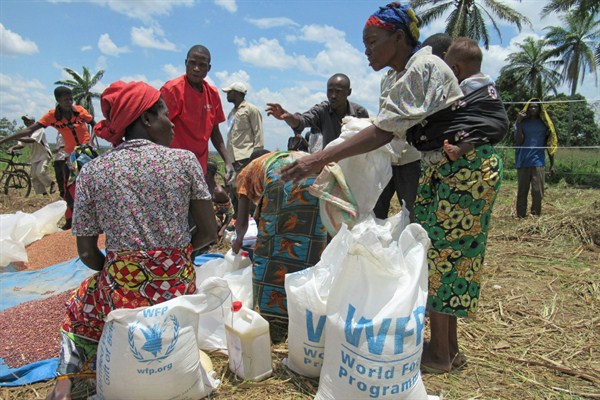The United Nations is sounding the alarm over the large-scale and ongoing expulsion of migrants and refugees from Angola, which has triggered a humanitarian crisis along its border with the Democratic Republic of Congo. So far this month, nearly 330,000 people have been forcibly deported from Angola into the Congolese border regions of Kasai, Kasai Central and Kwango.
On Friday, Michelle Bachelet, the U.N.’s high commissioner for human rights, warned that the migrants face an “extremely precarious situation” and raised the prospect of renewed communal violence in an unstable region. Six people have already been confirmed dead, reportedly at the hands of security forces, and there are unverified reports of other killings, according to the United Nations. For an update on the situation, WPR recently spoke with Stephanie Wolters, a Central Africa analyst and head of the Conflict Prevention and Risk Analysis Program at the Institute for Security Studies.
The expulsions began during the first week of October, when armed men looted and pillaged a Congolese neighborhood in the town of Lucapa, where economic migrants work in the area’s rich diamond mines, many of which operate informally. The expulsions are reportedly part of an Angolan government push to assert greater control over its mining industry. But regardless of its aims, Wolters says the Angolan government’s methods raise a number of concerns.

